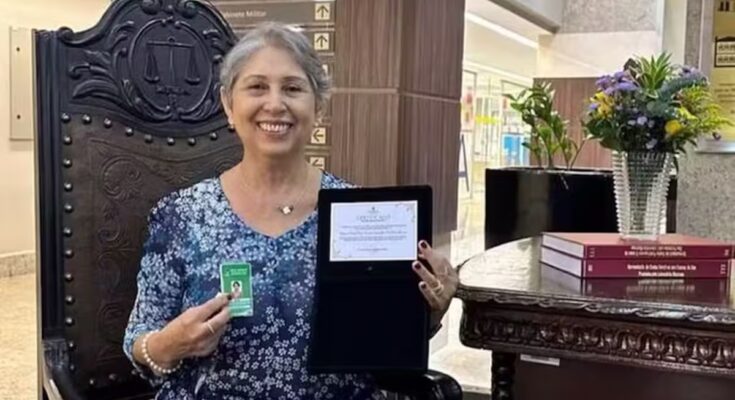Violent attacks in broad daylight are rare in central Buenos Aires and even less so on its most touristy thoroughfare, Avenida Corrientes. Justice is investigating the murder of the Brazilian María Vilma das Dores Cascalho da Silva Bosco, which occurred last Thursday after midday. The 69-year-old woman had gone to Argentina to spend a few months with her daughter, a medical student at the University of Buenos Aires. On November 6, she was walking along Avenida Corrientes, in the Abasto neighborhood, when a man approached her and hit her “for no apparent reason,” according to police sources. The attacker threw her to the ground and as she fell, her head hit the ground. Although emergency services quickly transported her to a nearby hospital, they failed to save her life and Cascalho da Silva Bosco died from head trauma.
The news arrived this Wednesday, after the family asked for speed in the procedures for the repatriation of the body and made a collection via social networks to be able to pay for the transfer. The attacker, a 30-year-old man, is in custody, accused of attempted murder.
Born in Itapuranga, in the central state of Goiás, Cascalho da Silva worked until her retirement as an official at the Court of Justice of Goiás. Her former colleagues, interviewed by the Brazilian portal G1, described her as a committed and generous person. He had arrived in Argentina in July and planned to return to Brazil in the next few weeks.
The Buenos Aires police arrested the attacker a few hours after the attack and reported that he is a man with numerous criminal records “for robberies, attempted thefts, injuries and disorder on public roads” and with hospitalizations in mental health centers “for psychiatric problems” from which he escaped on several occasions.
Official information reinforces the hypothesis that the attacker acted without prior provocation or with the intent to rob, but that it was an episode of uncontrolled violence. The prisoner was temporarily transferred to the Borda psychiatric hospital and the judicial authority is analyzing whether the prisoner is responsible or not.



